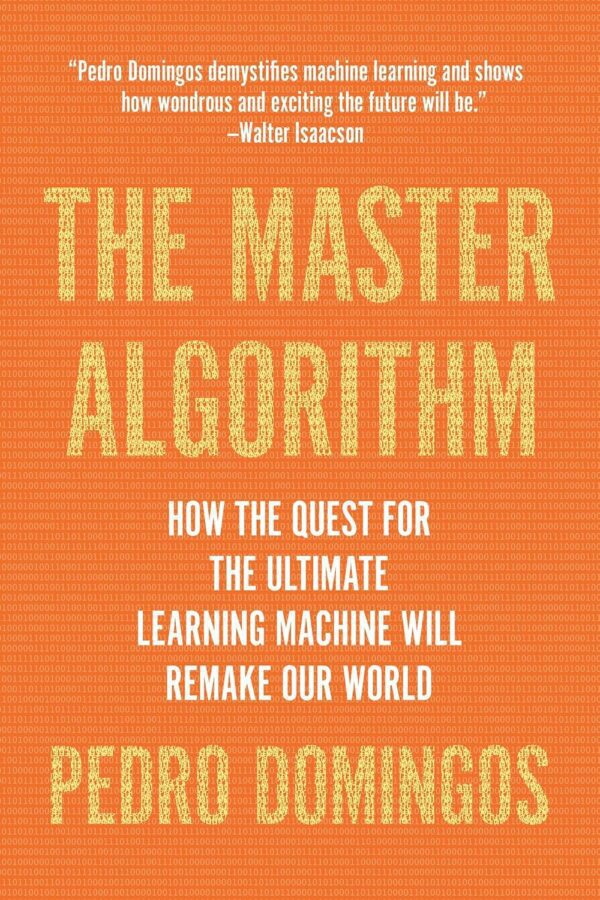The Algorithm That Will Change the World
In The Master Algorithm, Pedro Domingos, a professor of computer science at the University of Washington, takes readers on an illuminating journey through the world of machine learning (ML). The book provides a comprehensive and accessible explanation of how machine learning is transforming everything from healthcare and finance to entertainment and technology. Domingos argues that at the heart of this transformation lies the development of a “master algorithm”—a unified theory of machine learning that could ultimately change the world as we know it.
Machine learning is already revolutionizing industries, but Domingos suggests that its full potential has yet to be realized. This book is a call to arms for those who want to understand how ML will influence their lives and why we must pay attention to its rapid evolution.
The Quest for the Master Algorithm
Domingos begins by explaining the basic concepts of machine learning, such as supervised learning, unsupervised learning, and reinforcement learning. However, the heart of the book is focused on the idea of the master algorithm—a single, universal algorithm that could learn from all data and make intelligent decisions across various domains. This concept stems from the idea that if we can develop an algorithm that can learn from every type of data, we could create a super-intelligent system capable of transforming industries in ways we’ve never imagined.
Domingos explains that, while no single algorithm yet embodies this vision, various research groups are working towards this goal, using different learning paradigms. He highlights the work of the five schools of machine learning, each focusing on a different aspect of the learning process: symbolists, connectionists, evolutionaries, bayesians, and analogizers. Domingos presents these approaches in an engaging and non-technical way, making it easy for anyone to grasp.
Machine Learning: The Force That Will Reshape the World
One of the key strengths of The Master Algorithm is how Domingos connects machine learning to real-world applications. From self-driving cars and personalized medicine to recommendation algorithms used by Amazon and Netflix, Domingos shows how ML is already reshaping industries and will continue to do so for the foreseeable future.
Domingos also explores the societal implications of machine learning, discussing the ethics, privacy concerns, and job displacement that could result from the widespread use of algorithms in every facet of life. He acknowledges the dark side of automation, where powerful algorithms could exacerbate existing inequalities or even create new forms of discrimination. However, Domingos believes that if we can develop the master algorithm responsibly, it can unlock immense potential for good.
The Future of AI and Machine Learning: What Lies Ahead
While the master algorithm remains an ambitious goal, Domingos paints a picture of an exciting and uncertain future. As machine learning continues to improve, we can expect it to influence almost every area of life:
- Healthcare: Machine learning could help doctors diagnose diseases more accurately and suggest personalized treatments based on a patient’s genetic profile, history, and lifestyle.
- Education: Personalized learning algorithms could revolutionize education, enabling adaptive learning systems that tailor lessons to each student’s needs and pace.
- Business and Finance: From stock trading to customer service, machine learning will enable businesses to make smarter, faster decisions based on data-driven insights. This will lead to greater efficiency and personalized consumer experiences.
- Autonomous Systems: Domingos foresees the rise of intelligent systems capable of performing complex tasks without human intervention. This could revolutionize everything from transportation (e.g., autonomous vehicles) to manufacturing and even space exploration.
Machine Learning and Its Ethical Implications
While Domingos is optimistic about the transformative potential of machine learning, he does not shy away from the ethical concerns surrounding its implementation. From algorithmic biases to data privacy issues, the widespread deployment of machine learning could raise significant questions about fairness, accountability, and transparency.
Domingos calls for careful regulation and oversight of the development and deployment of machine learning technologies, urging both policymakers and technologists to ensure that these technologies benefit society as a whole rather than reinforcing existing inequalities. He emphasizes that the development of the master algorithm, and its eventual ubiquity, will require collaboration between scientists, ethicists, lawmakers, and the general public to navigate the complex challenges ahead.
Final Thoughts: A Must-Read for Anyone Interested in the Future of AI
The Master Algorithm is a compelling and accessible introduction to the world of machine learning. Pedro Domingos does an excellent job of demystifying complex technical concepts while making them engaging and relevant to real-world applications. Whether you’re an AI enthusiast, a business professional, or simply someone curious about the future of technology, this book offers valuable insights into how machine learning will continue to shape the world.
With its mix of technical depth, real-world examples, and ethical considerations, The Master Algorithm is a must-read for anyone seeking to understand how machine learning will transform everything—from the economy and healthcare to our personal lives and society at large.


